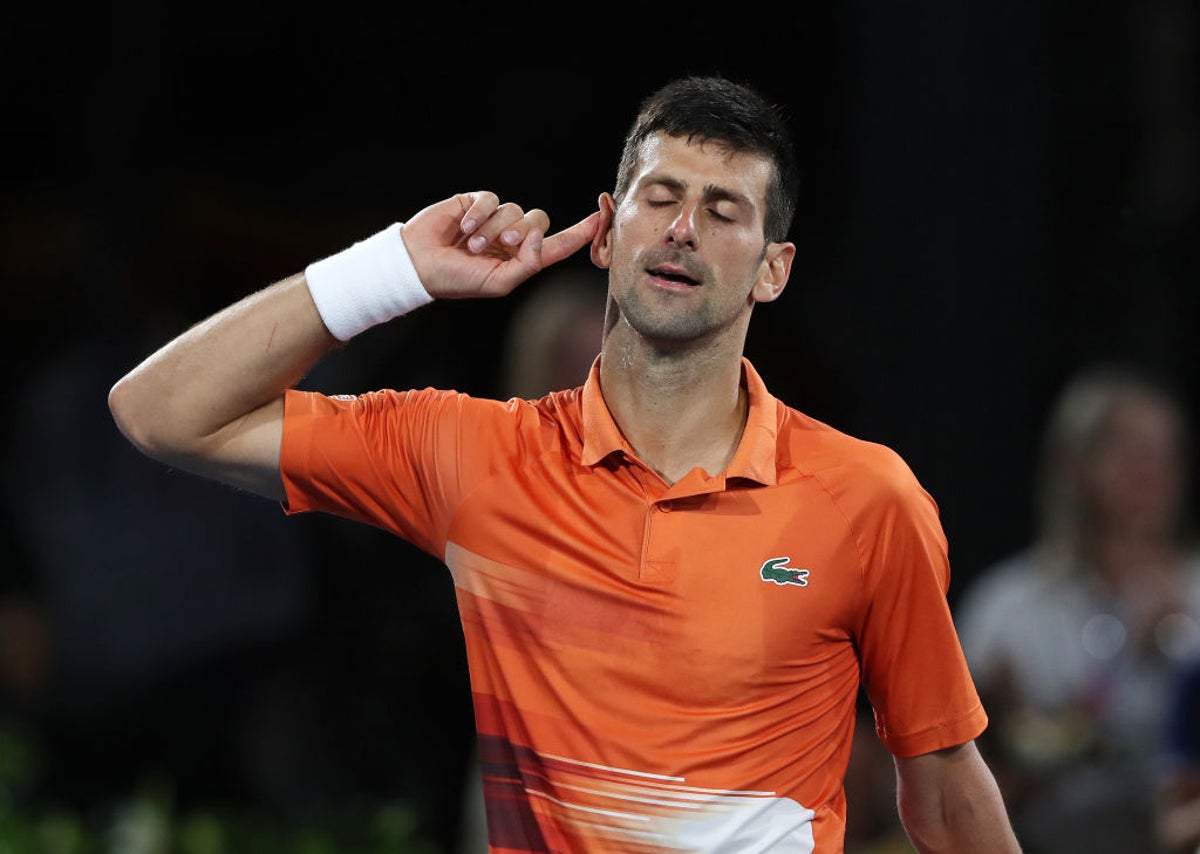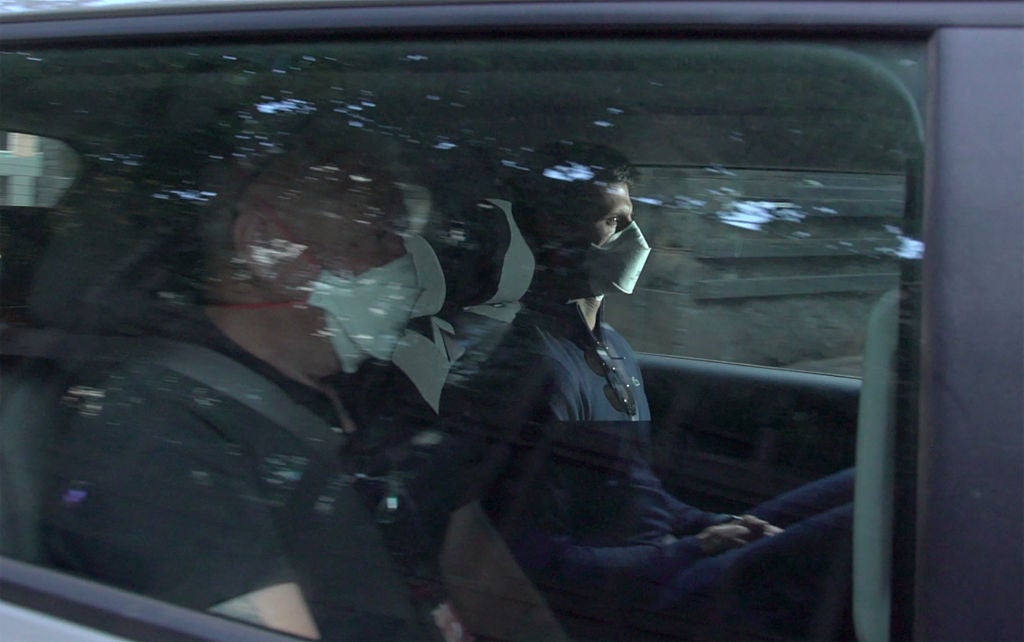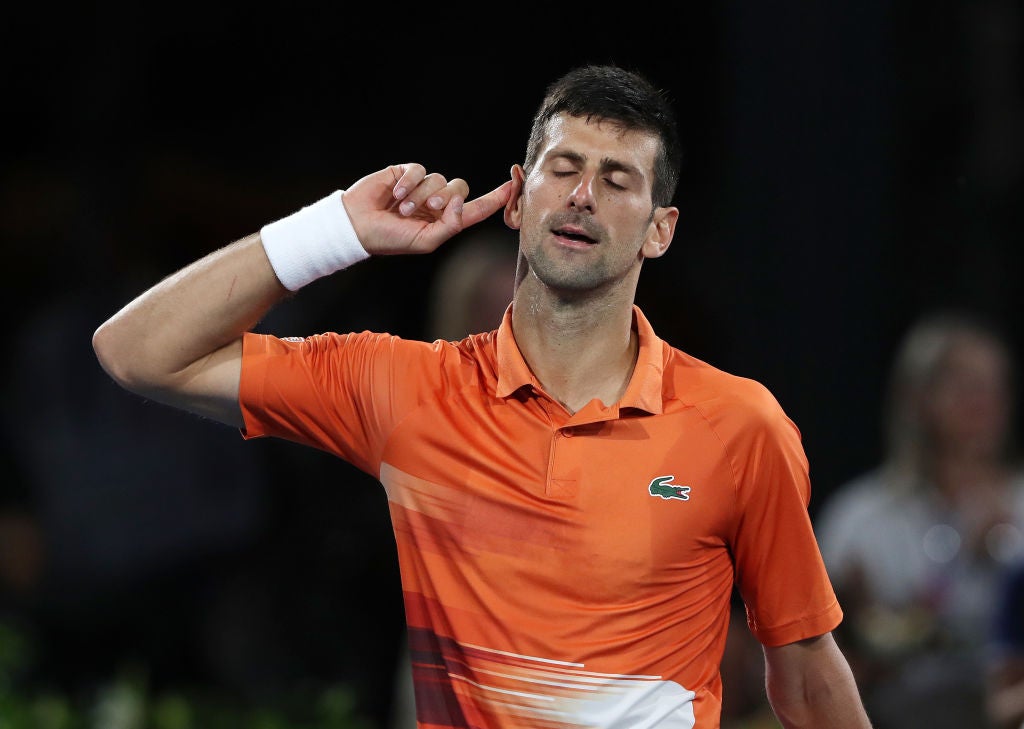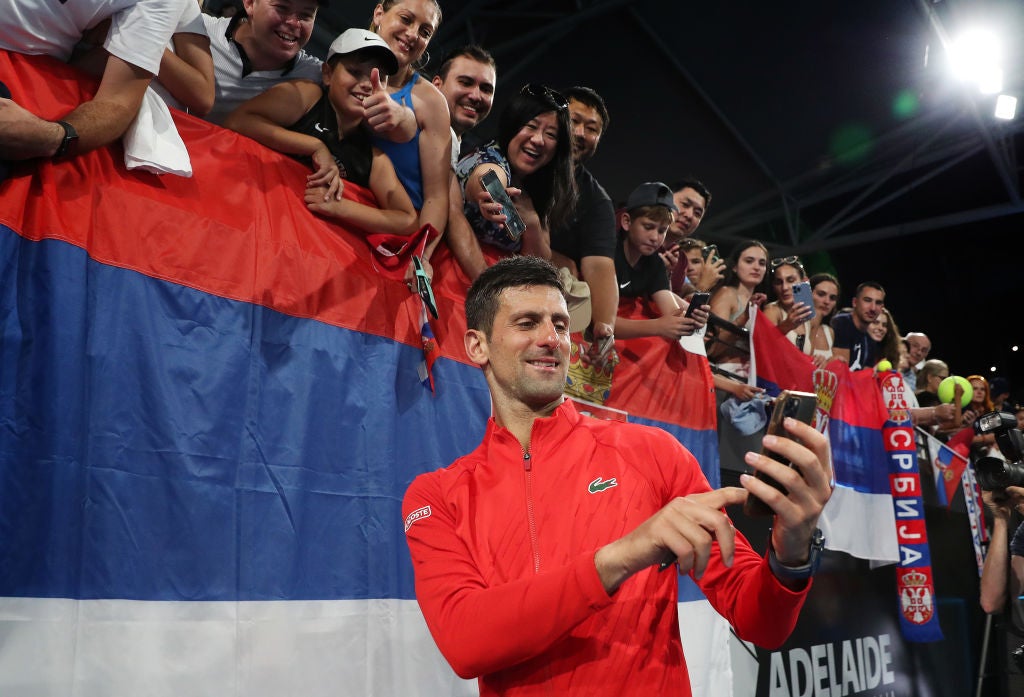
Novak Djokovic pointed to his head and then cupped his ear. He was back, a champion in Australia once again, and after the harrowing experience of being deported from the country 12 months ago this was surer, more familiar ground to be standing on. Djokovic has admitted the events of last January will stay with him for the rest of his life; from being interrogated at border control, his detention in an immigration facility, to the cancelation of his visa amid a political storm that grew beyond tennis, Djokovic was at the centre of the biggest news story in the world.
He was, in his words, the “villain of the world” after his unvaccinated arrival in Melbourne, a city still emerging from some of Australia’s longest and strictest Covid lockdowns. Djokovic had received a medical exemption in order to play the opening grand slam of the season but did not anticipate the strength and anger of the public backlash that decision received. The Serbian did not face the crowds in person last January but instead lost in the court of public opinion and was deported before he had played a match.
Djokovic says he does not hold a grudge for what happened in Australia, even as he admitted the incident affected him for several months. When the 35-year-old returned to the top of his game at Wimbledon, where he claimed a 21st grand slam title, Djokovic wanted to move on and leave the start of the year in the past. There has been the odd swipe in recent days, however, particularly at the media. Djokovic claims he was “picked on” and says the facts of his arrival into Australia were distorted, before the story blew out of control.
It is the clearest glimpse Djokovic has offered of any bitterness that remains, as he sharpens the edge he will look to use during his long-awaited return to the Australian Open. He does so with history on the line, ahead of his bid to win a 10th Australian Open and move level with Rafael Nadal on 22 grand slams. Djokovic, though, remains unvaccinated and given that, you might expect the sequel to the events of last January to continue with the same sense of outrage.
But the climate that was once vehement has since cooled. Twelve months on, Australia is under a new government, which led to Djokovic’s automatic three-year ban from applying for a new visa being overturned. The country has also relaxed its Covid policies and the contrast to last year was made clear by the Australian Open tournament director, Craig Tiley, confirming that players could continue to play even with a positive test.
It means that Djokovic’s preparations have focused more on the positive memories at Melbourne Park rather than negatives. Statistically speaking he can call the Rod Laver Arena, the scene of his nine Australian Open titles, the most successful court of his career. Indeed, although Djokovic is not the defending champion, and is only fifth in the world due to a tumultuous year of ranking points, this is still his to lose.

His preparation could not have gone any better. After landing in Australia, Djokovic warmed up at the ATP 250 event in Adelaide, swiftly dismissing Denis Shapovalov and then, impressively, last season’s Australian Open runner-up Daniil Medvedev. In the final against the in-form American Sebastian Korda, Djokovic found himself facing match point at a set down. From there, Djokovic did what he did best, he showed steel to stay alive in the match, sucking the life out of the 22-year-old Korda in the process.
There isn’t anyone better at it, and Djokovic knows it. “It gets into the heads of your opponents,” he said of his reputation, and the strength of his will. “That’s what I want. I want them to know that regardless of the scoreline, I’m always there.” It was an unerring statement for Djokovic to make ahead of his return to this tournament, where only Chung Hyeon has defeated him since 2018. After beating Korda and as Djokovic pointed to his head and then cupped his ear in celebration, the message was clear.

It was not, though, in response to the crowd, which is what a fleeting glance of the image may have suggested. On the contrary, Djokovic was welcomed back by tennis fans in Adelaide. As well as his ardent following of Serbian fans, who took to the streets in protest of Djokovic’s detention last summer, there were those who gathered around Djokovic for autographs and selfies.
The reception may be different in Melbourne – where Covid lockdowns were stricter – but by all accounts Djokovic will be given a warm welcome when the opening grand slam of the season begins on Monday. He did so in an open practice session with Medvedev on Wednesday, while a charity match against Nick Kyrgios to be played on Friday sold out in just 58 minutes. That said, the Australian Open is braced for some boos. Before the tournament, Tiley said anyone who crosses the line in taunting Djokovic will be “kicked out” but added he was “confident that the fans of Melbourne, similar to the experience that he had in Adelaide, will be just as good."
Thursday’s draw was kind to Djokovic in the early rounds and he avoided being placed in the same half of the tournament as Nadal and Medvedev, the only two players to have beaten him at a grand slam in the past two years. A potential rematch of the Wimbledon final against Kyrgios is a tantalising prospect for the quarter-finals, but the 19-year-old talent Holger Rune, who defeated Djokovic in the final of the Paris Masters last season, is also a possibility. As always, though, facing Djokovic across five sets is a different challenge.

The Australian Open was supposed to not just be about Djokovic’s long-awaited return, but also the first grand slam showdown between him and Carlos Alcaraz, the world No 1 and reigning US Open champion. Alcaraz’s forced withdrawal due to injury is a blow to the tournament but a boost to Djokovic, while Nadal’s hopes, already hampered by poor form, were hit by a fiendishly difficult draw. It starts with Jack Draper and only gets tougher.
There remains an ever-growing list of contenders even without Alcaraz, but Djokovic on his return has the ability and the aura to make all other conversations and considerations obsolete. It was why on match point in the Wimbledon final last summer, where Djokovic had rarely found the majority of the support, Centre Court began to chant his name. In the end, there was only admiration for his game. In Melbourne he will aim to let that do the talking once again, even after everything he has been through.







